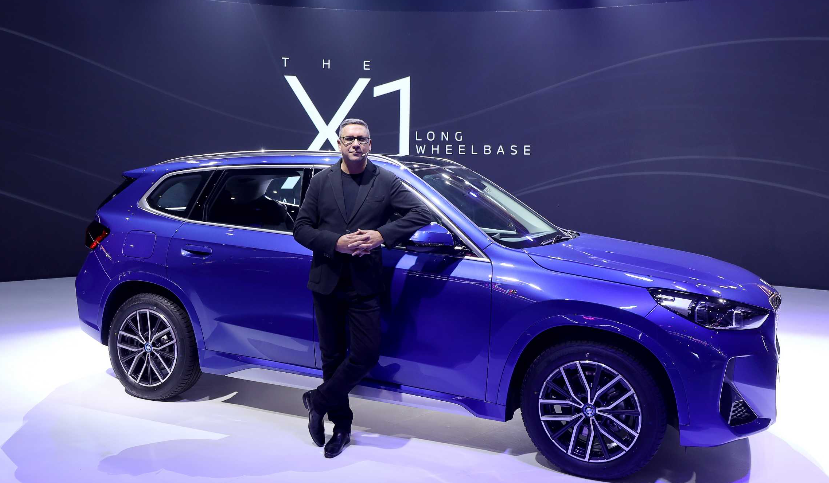[ad_1]

New Delhi: BMW India has posted its best-ever quarterly sales figures in Q1 2025, driven by demand for its sports activity vehicles (SAVs) and electric vehicles (EVs).
The company reported a 7 per cent year-on-year growth, with sales of 3,914 BMW and MINI cars in Q1 2025, and it is expecting to register a double-digit growth in its registration during the same period.
“In Q1 2025, while the overall market is expected to grow by around 6-6.5 per cent in terms of registrations, BMW’s registrations will grow by 17 per cent,” said Vikram Pawah, CEO and president, BMW Group India, in an interview with ETAuto.
New launches lined-up
To maintain its strong growth momentum, the automaker is planning several launches and major expansion initiatives across cities. BMW India is particularly optimistic about its recently launched BMW X3–with deliveries expected to begin this month–which is expected to further fuel strong sales.
This calendar year, BMW India has an expanded product portfolio on offer that includes 21 new offerings, comprising 8 BMW models, 6 MINI models, and 7 Motorrad products.
Currently, the company’s portfolio includes a variety of SUVs, ranging from the best-selling BMW X models to the flagship X7, which accounted for 55 per cent of the company’s Q1 sales.
Interestingly, electric vehicles-based i Series recorded over 200 per cent year-on-year growth during the period, while the 5 Series long wheelbase sedan remains the best-seller among its sedan offerings, alongside the 7 Series limousine.
In line with the “Make in India” initiative, the German car manufacturer is locally producing 10 models at its Chennai plant, including the BMW 2 Series, BMW 3 Series long wheelbase, BMW 5 Series long wheelbase, and BMW M340i.
The dynamics of the Indian market
The Indian luxury car market is now among the top five in the Asia-Pacific region and the group is betting big on India’s growing luxury space with the average age of BMW customers shifting from 42 years to a younger demographic. This trend is attributed to the rising aspirations of young people striving for a more luxurious lifestyle.
“I believe the time is right for India, and you will see rapid growth in the luxury segment,” added Pawah. BMW aims to meet all customer demands in its vehicles to solidify its dominance in the growing Indian luxury space.
While the high GST rate of 28 per cent in India is seen as a major roadblock by most luxury automakers, BMW has a different take and believes it will not hinder the company’s growth prospects.
“The market has shifted from being demand-driven to being supply-driven,” Pawah explained.
In India, the Munich-based automaker derives 50 per cent of its sales from its top 10 cities, with the remaining half coming from other cities across India. There is a strong demand for SAVs, such as the X1, X3, X5, and the X1 long wheelbase. According to the company, it has already received 1,500 bookings for its newly launched electric X1 long wheelbase within just two months of the launch.
Retail diversification
BMW has ambitious retail expansion plans through Retail.NEXT, a project designed to redefine the customer experience with new designs, digital tools, roles, and processes. The company has so far invested about ₹365.6 crore in the new initiative.
In Q2 2025, BMW aims to add nine new touchpoints in cities such as Delhi, Chennai, Hyderabad, Bengaluru, Kolkata, Jaipur, and Guwahati. By mid-2027, it is planning to expand to 56 facilities across 33 cities.
[ad_2]
Source link





